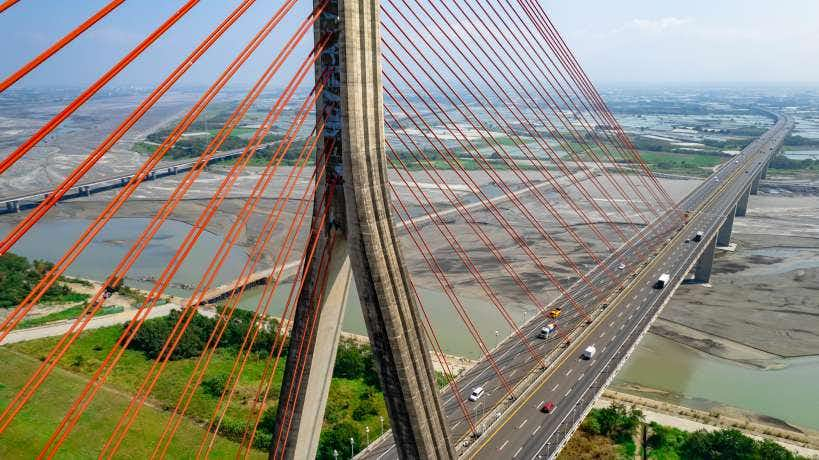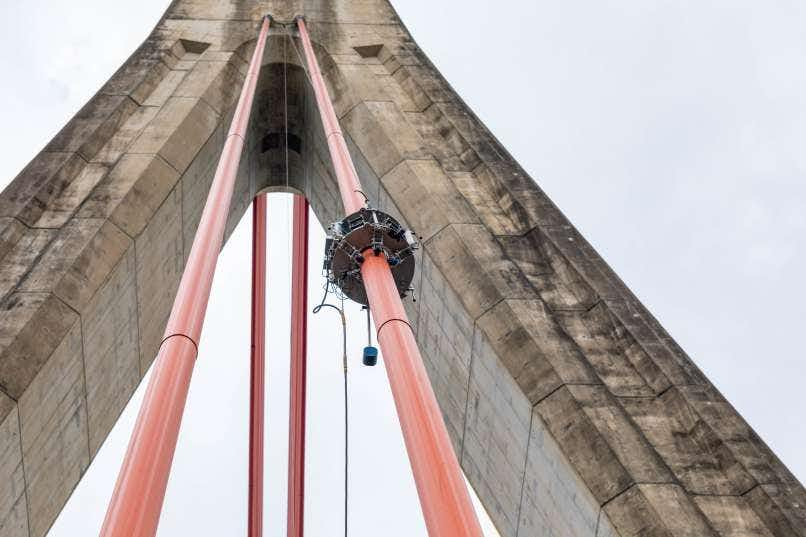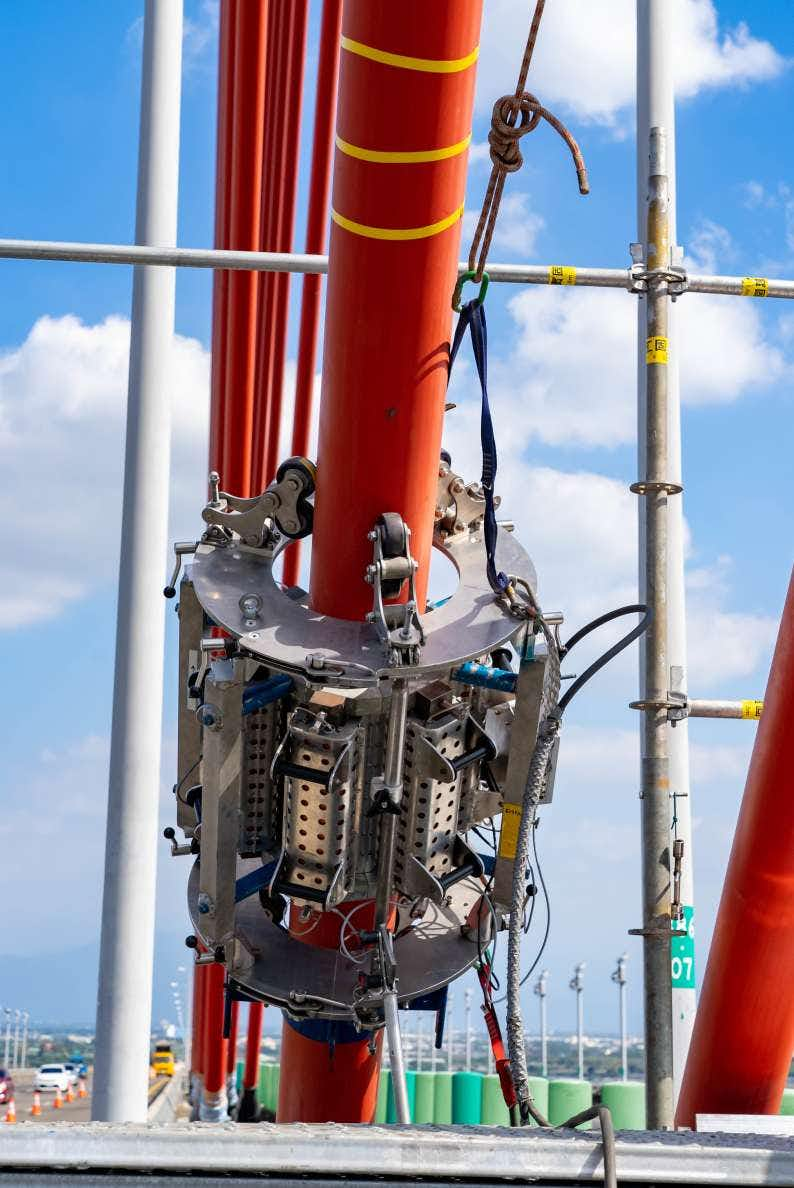Smart Stay Cable Testing Solutions Keep World-famous Bridge Safe
DYWIDAG’s stay cable systems testing expertise ensured that one of the world's longest stay cable bridges was still fit for service. Smart non-destructive testing and inspection methods also meant the route could remain open with little disruption to travellers.
Context
The Kao Ping Hsi Stay Cable Bridge crosses the Kao Ping River in southern Taiwan, connecting the Kao Shiung and Ping Tung Counties. A world-famous landmark, it was the longest stay cable bridge in Taiwan and the second-longest single pylon asymmetrical stay cable bridge in the world when it was completed, with a span of 330m.
After the collapse of the Nangfang’ao Bridge in October 2019, the Taiwan government embarked on a country wide inspection for all stay cable and extradosed bridges. Since there were no suitable technologies or guidelines for this work used in Taiwan, the Taiwan Freeway Bureau engaged DYWIDAG to undertake a full inspection of the Kao Ping Hsi Stay Cable Bridge. The aim was to determine the condition of the 60 stay cables after 22 years in service. Each cable was made up of 43 to 91 strands, with the longest cable length exceeding 315m.
As the bridge is located on a major route (the No. 3 Freeway System), it was important that any disturbance to traffic was kept to a minimum. Furthermore, the Freeway Bureau had stringent safety regulations that needed to be adhered to.

Solution
A full detailed cable inspection was performed, using a combination of DYWIDAG manual, visual, and robotic inspections. A manual visual inspection of the anchorages, caps, wedges, and strands was complemented with ultrasonic testing of the anchorage areas. This way, wire fractures, cracks, and corrosion damage could be identified from the ultrasonic readings.

Self-driving visual inspection robots were used for the visual inspection of the cables. This inspects the entire testable cable length, irrespective of diameter, in accordance with the German standard DIN 1076. A certified Bridge Inspector uses the high-resolution panorama image to inspect the cable and prepares a technical report with noticeable issues and further advice. Furthermore, the images can be stored and used for historic comparisons in the future.
Magnetic inspections were carried out using DYWIDAG robotics as well. With this, possible wire fractures could be detected within the stay cables. This is based on the elasto-magnetic properties of ferromagnetic materials, which avoids mechanical wear and overloading of the sensor.

Where needed, endoscopic camera inspections were undertaken, enabling an optical inspection of exterior wires around the cable perimeter. Lift-off tests were also performed on all stay cables, to determine the cable force. As part of this work, the stay cables were also enhanced so that access for future inspections was improved.
Because the stay cables are located at the center of the bridge deck, only center lane traffic closures were required when performing the robotic inspection services from the deck. Strict adherence to the Freeway Bureau safety protocols was required to ensure minimal traffic disturbance and a safe working environment during the inspection work.

Other important safety issues included working in a confined space environment inside the deck structure, climbing within the 140-meter-high pylon, and use of a mobile crane in excess of a 50-meter working height. Each of these activities were carefully planned and executed in accordance with the approved health and safety plan as required by the Freeway Bureau and along DYWIDAG Company Safety standards as well.
The work was completed within the agreed timeframe. DYWIDAG developed a maintenance manual for the Freeway Bureau to use in the future, as well as providing a training seminar to their employees on how to perform cable inspections. A technical publication was also prepared, which could be distributed to trade journals in order to share knowledge.






